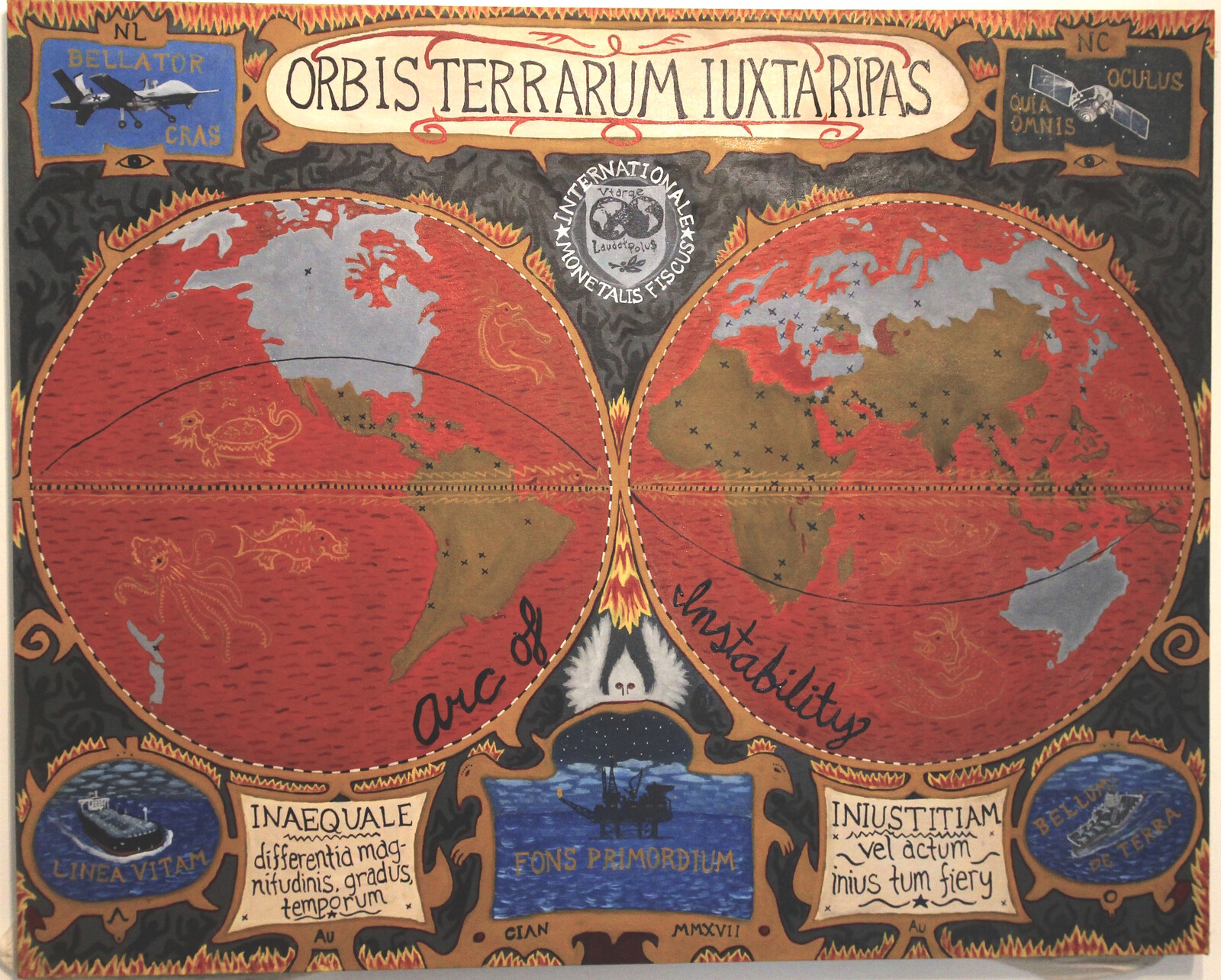L’Internationale Online is the platform for research and art, launched in 2014 by the museum confederation L’Internationale and currently managed by HDK-Valand Art Academy, operating within the framework of the four-year programme Our Many Europes.
L’Internationale Online launches its newest e-publication, Class and Redistribution, as the third in a series of e-publications edited by L’Internationale Online looking at concepts of political economy. Following the previous publications Austerity and Utopia and Degrowth and Progress, the present issue complicates two contested economic terms: class and redistribution. By inviting contributions from sociologists, political philosophers and artists, we seek to understand how these terms are utilised in institutional contexts and artistic practices.
Our approach challenges orthodox definitions of economic categories. Since the universal, ahistorical use of these categories is debatable, we accept, following historian Dipesh Chakrabarty, “the[ir] dual nature,” and interrogate their “intellectual and social histories.” It is urgent, for example, to question the Western cultural logic that governs financial practices and instruments such as insurance and property rights, and to expose the coloniality of an equation that synonymises productivity and profit, or custody and patrimony.
Class is a concept that engages many artistic practitioners. However, the meaning of class—as it was conceived and popularised in the early nineteenth century by Marx and Engels, as social relations contra their means of production—has changed radically as a result of social transformations. Feminist theory contests a narrow classification of labour based on commodified work and has instead made visible the spheres of non-commodified work, in order to theoretically dissolve the division between paid and unpaid labour.
Postcolonial and feminist perspectives call for plurality, since the white European male (waged) class subject that underwrites Marx’s thinking can no longer be understood as an exclusive agent of transformation. How can alternative ways of perceiving class be advanced? Who is this ‘revolutionary subject’? Any exercise in consciousness-raising requires critical engagement with Marxist ideas, norms and beliefs, as they are embedded in postcolonial imaginations. This approach acknowledges that systems of representation and patterns of legitimisation are deeply sedimented with relations of power.
The pandemic has firmly reminded us of the essential inconsistency within dominant systems that rank profits over the necessities of life-making or social reproduction. Social reproduction includes all relationships essential to the sustenance of life now and in the future. Care and domestic labour – cooking meals, caring for the elderly, or assisting in education – is an essential component of social reproduction, but not its only aspect. The cultivation of practices of community work or self-care produces social bonds and a healthy ecosystem. Opposing decline means caring for people, for the land, for local collectives, and for the direct reproduction of life.
With contributions by Cinzia Arruzza, Cian Dayrit, Noah Fischer, Frigga Haug, Sharon Hayes, Ingela Ihrman, Rafał Milach, The Marxist Feminist Collective, Naeem Mohaiemen, Aykan Safoğlu, and Françoise Vergès.
Editors of Class and Redistribution: Farah Aksoy, Meagan Down and Corina Oprea. The members of the L’Internationale Online Editorial Board are: Nick Aikens, Farah Aksoy, Sara Buraya Boned, David Crowley, Meagan Down, Anne-Claire Schmitz, Ida Hiršenfelder, Pablo Martinez, Jyoti Mistry, Corina Oprea, Yuji Kawasima, Tove Posselt. Contact: Corina Oprea, Managing Editor L’Internationale Online, corina.oprea [at] internationaleonline.org.
L’Internationale Online is the platform for art and research of a confederation of seven modern and contemporary art institutions: MG+MSUM (Ljubljana, Slovenia); Museo Reina Sofía (Madrid, Spain); MACBA, Museu d’Art Contemporani de Barcelona (Spain); Museum of Contemporary Art Antwerp (M HKA, Antwerp, Belgium); Museum of Modern Art in Warsaw (MSN, Warsaw, Poland); SALT (Istanbul and Ankara, Turkey) and Van Abbemuseum (VAM, Eindhoven, the Netherlands). L’Internationale is working together with complementary partners such as HDK-Valand Academy of Arts and Design in Gothenburg, Sweden and the National College of Art and Design in Dublin (NCAD), Ireland.





